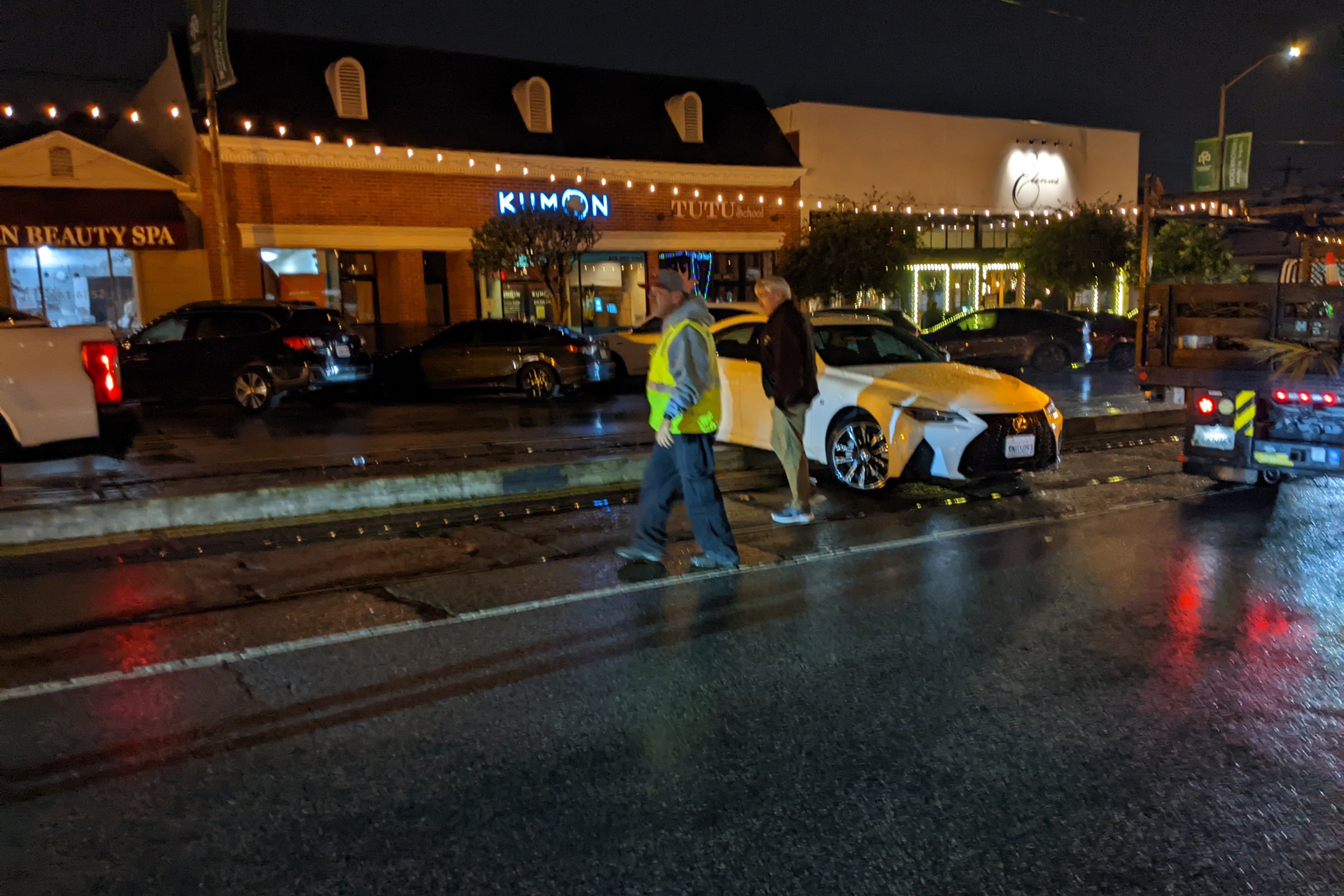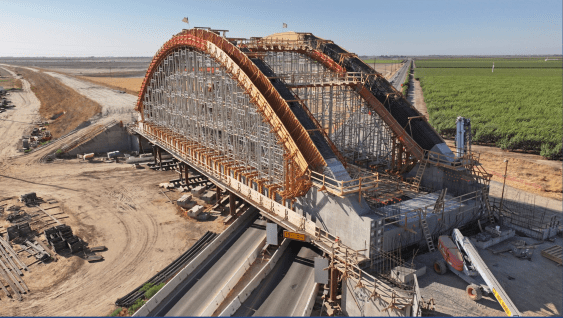 Supervisor Sean Elsbernd canvasses near West Portal station this morning. Photo: Michael Rhodes
Supervisor Sean Elsbernd canvasses near West Portal station this morning. Photo: Michael RhodesPeople catching Muni near West Portal station this morning were greeted by an unusual sight: Supervisor Sean Elsbernd, SPUR Executive Director Gabriel Metcalf, and a team of volunteers were out canvassing the avenue to gather signatures for a ballot measure that would change the way the city sets Muni operator salaries.
Elsbernd, who first introduced the measure late last year only to see it receive an icy reception in a Board of Supervisors committee, said getting it on the ballot through a signature campaign was a daunting task, but so far people are receptive.
"If they give you that two seconds to talk to you about it, they'll sign it," he said. "It's just whether or not they'll give you that two seconds."
After twenty minutes of standing out on West Portal Avenue, Elsbernd said he'd collected about 15 signatures. To get on the November ballot, 70,000 of San Francisco's half-a-million registered voters must sign a petition in support of putting the measure on the ballot.
"We've got a lot of signatures we've got to collect in the next few months," Elsbernd acknowledged.
The measure would remove language from the City Charter that currently sets Muni operator salaries and benefits at the average of the two highest-paying large transit agencies in the country, instead of through a collective bargaining process. The measure's supporters argue that the charter provision has been too costly for Muni and has given management less flexibility to negotiate better work rules.
One woman who signed the petition, Melainie Hedani, said she did so out of frustration with how poor Muni service has been recently. "I hope something comes from it," she said while waiting at the inbound West Portal platform. Trains have been increasingly crowded and unpredictable in the last two months, she added.
Most of the voters who signed the petition shared Hedani's interest in fixing Muni, even if they didn't have time to hear the full details of the proposal. But a San Francisco firefighter named Mark said it was wrong to target workers for the city's budget problems.
"It's an attack on city workers," he said. "We're not the ones breaking the city budget."
The operators union has also strongly opposed the measure, though union representatives couldn't be reached for comment today. In the past, Transport Workers Union Local 250-A President Irwin Lum has defended the current Charter provision, which he said has ensured decades of labor peace.
SPUR's Metcalf, however, called the measure a "small but practical" way to improve Muni by ultimately reducing costs and giving the San Francisco Municipal Transportation Agency, which runs Muni, more leverage to negotiate operator work rules that he hopes will reduce absenteeism and make Muni more efficient.
Of course, the petition's supporters aren't likely to get 70,000 signatures just by hanging out on West Portal Avenue: they're also directing people to a website, fixmuninow.com, where voters can get a signature form, and SPUR is organizing volunteers to canvass for the measure. Elsbernd said he hopes more groups will join SPUR in supporting the measure in the comings weeks.
"I think you're going to see some other interesting groups coming on board," he said. "We're going to build a very broad coalition around this."
They've also got a Facebook group and Twitter feed, though it appears both sides of the campaign have grown savvy to social media: TWU has a Facebook page now as well, and it's clear the measure won't go unopposed.
"Elsbernd's Charter Amendment is not MUNI reform," reads a recent note on the TWU Facebook page. "It is plain and simply focused on attacking the Operator."
While this may be the first Muni charter amendment measure debate to take place in the age of social media, for this morning at least, the work took place out on the street.




